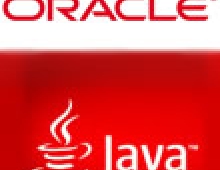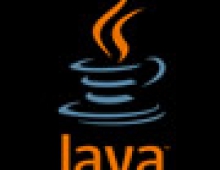
Sony Ericsson releases Mobile JUnit for Java ME
Sony Ericsson Mobile JUnit 1.0 for Java ME Connected-Limited-Device-Configuration (CLDC) phones offers professional wireless developers easy-to-use, automated testing of mobile applications.
Sony Ericsson Developer World today announced the release of a new, best practice framework for improving application quality on Java Platform Micro Edition (Java ME). The announcement underscores the commitment of Sony Ericsson Developer World to help developers achieve business success by providing assistance throughout the entire development and go-to-market process for commercial applications.
Sony Ericsson Mobile JUnit 1.0 is of benefit to developers of both games and complex Java enterprise applications, for example a mobile banking service. It specifically addresses the challenges of testing Java ME applications without increasing development time and costs. In order to improve the quality of an application coming to market and thereby give consumers a better user experience, developers may typically use unit testing programs, which test how a single unit of code is working. Unit testing aims to break down large applications or systems into small parts with a number of specific test cases and then test each part to ensure correct behavior, all with the aim to find and correct bugs before commercializing an application.
Unit testing for applications written in Java SE (Standard Edition) is primarily done using the popular, open-source JUnit framework, a regression testing framework allowing programmers to test their own software. With the release of the Sony Ericsson Mobile JUnit, a comprehensive set of guidelines and principles for Java ME CLDC unit testing is available for the first time.
"Testing code in Java ME, especially based on the CLDC environment, has historically presented a number of difficulties. Without an easy-to-use testing framework, developers were more likely to skip unit testing entirely," says Mikael Nerde, Head of Developer Program & Content Planning at Sony Ericsson. He continues, "This meant that the only time developers could truly identify an issue was when the application had been completed and tested by a third party such as during Java Verified certification. Consequently, if any bugs were found, it could take significant time to isolate the problem code and fix it, adding development and extra testing costs. With Sony Ericsson Mobile JUnit, this can all be avoided."
During development, Java ME applications must be tested while running within a desktop emulator or on the mobile phone the application is aimed for. On-device testing is particularly important since emulators cannot accurately reproduce all aspects of the final running environment. The Sony Ericsson Mobile JUnit enables fully automated regression testing of CLDC applications both in the emulator and on the real phone, resulting in higher quality applications while simplifying the process for finding and debugging code. In addition, after the application has been released, Mobile JUnit aids future development work by eliminating the introduction of new bugs to the code.
Mobile JUnit and a special interest paper can be downloaded for free from the Java Docs & Tools section of the Sony Ericsson Developer World portal (http://www.sonyericsson.com/developer/java). Mobile JUnit depends on the Sun Java Wireless Toolkit for CLDC (WTK) and can be used with any development tool that incorporates or extends the WTK, such as the Sony Ericsson SDK for the Java ME Platform.
Sony Ericsson Mobile JUnit 1.0 is of benefit to developers of both games and complex Java enterprise applications, for example a mobile banking service. It specifically addresses the challenges of testing Java ME applications without increasing development time and costs. In order to improve the quality of an application coming to market and thereby give consumers a better user experience, developers may typically use unit testing programs, which test how a single unit of code is working. Unit testing aims to break down large applications or systems into small parts with a number of specific test cases and then test each part to ensure correct behavior, all with the aim to find and correct bugs before commercializing an application.
Unit testing for applications written in Java SE (Standard Edition) is primarily done using the popular, open-source JUnit framework, a regression testing framework allowing programmers to test their own software. With the release of the Sony Ericsson Mobile JUnit, a comprehensive set of guidelines and principles for Java ME CLDC unit testing is available for the first time.
"Testing code in Java ME, especially based on the CLDC environment, has historically presented a number of difficulties. Without an easy-to-use testing framework, developers were more likely to skip unit testing entirely," says Mikael Nerde, Head of Developer Program & Content Planning at Sony Ericsson. He continues, "This meant that the only time developers could truly identify an issue was when the application had been completed and tested by a third party such as during Java Verified certification. Consequently, if any bugs were found, it could take significant time to isolate the problem code and fix it, adding development and extra testing costs. With Sony Ericsson Mobile JUnit, this can all be avoided."
During development, Java ME applications must be tested while running within a desktop emulator or on the mobile phone the application is aimed for. On-device testing is particularly important since emulators cannot accurately reproduce all aspects of the final running environment. The Sony Ericsson Mobile JUnit enables fully automated regression testing of CLDC applications both in the emulator and on the real phone, resulting in higher quality applications while simplifying the process for finding and debugging code. In addition, after the application has been released, Mobile JUnit aids future development work by eliminating the introduction of new bugs to the code.
Mobile JUnit and a special interest paper can be downloaded for free from the Java Docs & Tools section of the Sony Ericsson Developer World portal (http://www.sonyericsson.com/developer/java). Mobile JUnit depends on the Sun Java Wireless Toolkit for CLDC (WTK) and can be used with any development tool that incorporates or extends the WTK, such as the Sony Ericsson SDK for the Java ME Platform.





















